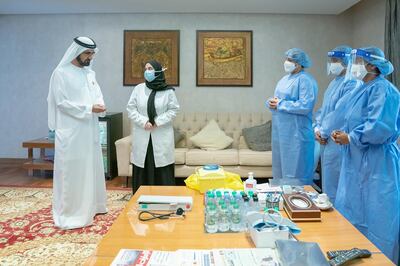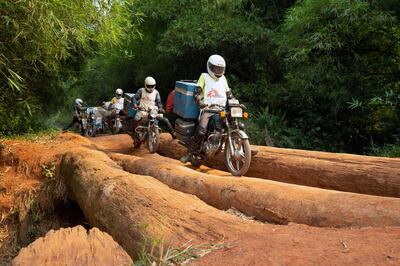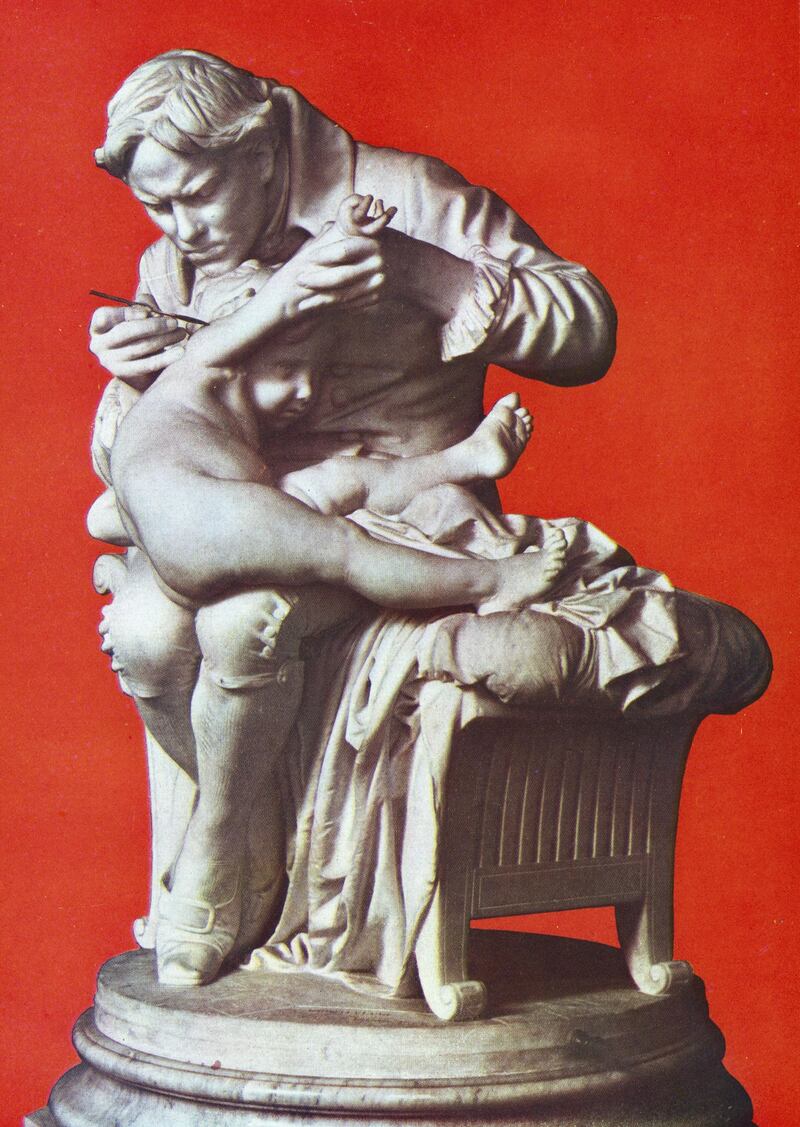The practice of inoculating people against disease is thought to date back almost half a millennium, to when something known as “variolation” was undertaken in China to combat smallpox. The methods are unappealing – one involved smallpox scabs from a sufferer being crushed and blown up the nostril of the person being inoculated – but they may have resulted in protection against what was a deadly viral infection.
Inoculation may have been employed in India around the same time and, subsequently, via the Ottoman empire, reached Europe.
It was in late 18th century England that the physician Edward Jenner realised the significance of local reports that people working in the dairy industry who had been infected with the viral disease cowpox subsequently had immunity to the related, but more harmful, smallpox. Jenner applied material taken from cowpox lesions to the arms of a young boy in 1796, and subsequently showed that the youngster had become immune to both cowpox and smallpox. This is regarded as the birth of modern vaccination.
However, vaccines really came into their own in the 20th century by playing a significant role in reducing the devastating toll of infectious disease and helping life expectancies in wealthy nations to increase by decades. In the year 1900, leading infectious diseases accounted for about one third of all deaths in the US, but a century later the figure was just 4.5 per cent.
Alongside other measures such as improved sanitation and the use of antibiotics, vaccination can take much of the credit for these kinds of advancements. Vaccination was pivotal in the elimination of smallpox in 1980, a milestone that the US Centres for Disease Control says is “considered the biggest achievement in international public health”.
Indeed, in his recent book The Body: A Guide for Occupants, the American author Bill Bryson notes that a Nobel Prize-winning British molecular biologist, Max Perutz, thought that vaccination may have saved more lives last century than antibiotics.
Fast forward to today and the world is in the midst of what may be the most intensive period of vaccine development of all time. Society is banking on a vaccine or vaccines to stem the coronavirus pandemic, which has resulted in more than 47 million confirmed cases of Covid-19 and in excess of 1.2m deaths.
To that end, no fewer than 202 vaccines are under development, according to World Health Organisation figures, of which 47 have already been given to people in clinical trials. Among other Middle Eastern nations, the UAE is leading the way, hosting trials for Chinese and Russian-developed vaccines, and some senior officials have already been immunised. As well as being extraordinary in scale, the international effort to develop a vaccine is moving at unprecedented speed.

Just how fast was apparent at a digital conference, Covid-19 Vaccines: Global Challenges and Prospects, organised this week by Saudi Arabia’s King Abdullah International Medical Research Centre. Timetables to develop vaccines and put them through clinical trials typically may stretch to 10 or 15 years, but they are being compressed into a fraction of this.
Professor Sarah Gilbert, who heads the University of Oxford and AstraZeneca vaccine programme, one of 10 initiatives in late-stage clinical trials, said her group’s vaccine was injected into the first human recipients in early-stage trials just 104 days after the sequence for the novel coronavirus was published by Chinese scientists. Indeed, Gilbert’s was one of the groups that started designing a vaccine in the weekend immediately after the sequencing results were posted online in January.
Work on what will be the first human vaccines against any coronavirus has been supercharged by billions of dollars of funding from governments across the world eager to help develop and gain access to an effective vaccine. They have already placed orders for hundreds of millions of doses, and mass production is already happening – even before final approval for mainstream use from regulators. Efficacy of around 50 per cent is likely to be enough to get the green light.

While the vaccines that are closest to regulatory approval – and in some cases are already being manufactured en masse ahead of the likely release of trial data in the coming months – are typically redesigned versions of vaccines already under use against other pathogens, others are pushing the envelope technologically. Most notably, the pandemic could see the approval of the first RNA vaccine for use in humans. If so, it would be a major breakthrough, coming more than two decades after the clinical trials of RNA vaccines began.
This week’s digital conference highlighted the extraordinary advances being made in vaccine technology. Professor Bali Pulendran, of Emory University in the US, says we are in a time of “warp speed immunology”, and this is improving researchers’ understanding of the immune response to the coronavirus.
Machine learning, for example, is helping to predict how individuals with a particular genetic make-up will respond to vaccines. The data generated by studies is fed back into the machine-learning systems, creating an iterative process allowing for ever more detailed improvements.
Researchers are also understanding how the immune response is affected by epigenetic factors – changes in the way a person’s genes are expressed that do not involve changes in the DNA – and by the microorganisms individuals contain, known as their microbiome.
Pulendran suggests advances in the speed of progress as a result of the pandemic may change vaccinology going forward, avoiding the need to go back to “business as usual”. And yet, just as the field is moving forward at a breath-taking pace, it continues to face challenges from those who appear not to believe in the science behind it.
The internet has allowed unfounded theories linking vaccination to illness to spread to the extent that last year the World Health Organisation put vaccine hesitancy among the top 10 health threats globally. Anti-vaccine sentiment has been blamed, at least in part, for outbreaks in the US in recent years of diseases such as measles and whooping cough.
Much of the present-day anti-vaccine sentiment can be traced to the influence of a British former doctor, Andrew Wakefield, who was struck off the UK medical register in 2010 but who continues to promote his discredited theories at conventions and on film. Researchers have identified that anti-vaccine campaigners are focusing their online efforts on Covid-19, raising concerns that the take-up of immunisation could be hampered by the spread of theories inspired by the likes of Mr Wakefield.
While vaccine hesitancy is actually nothing new – it was an issue in the 19th century, reaching a peak a century after Jenner’s work – the concerns behind it might seem uniquely suited to a present day, in which misinformation can proliferate almost without restriction thanks to the web. But with the coronavirus killing thousands every day, never more than now has vaccination been better placed to silence doubters by preventing deaths on a grand scale and helping to bring an upside-down world back to something like normality.
Daniel Bardsley is a journalist who reports on science for The National






